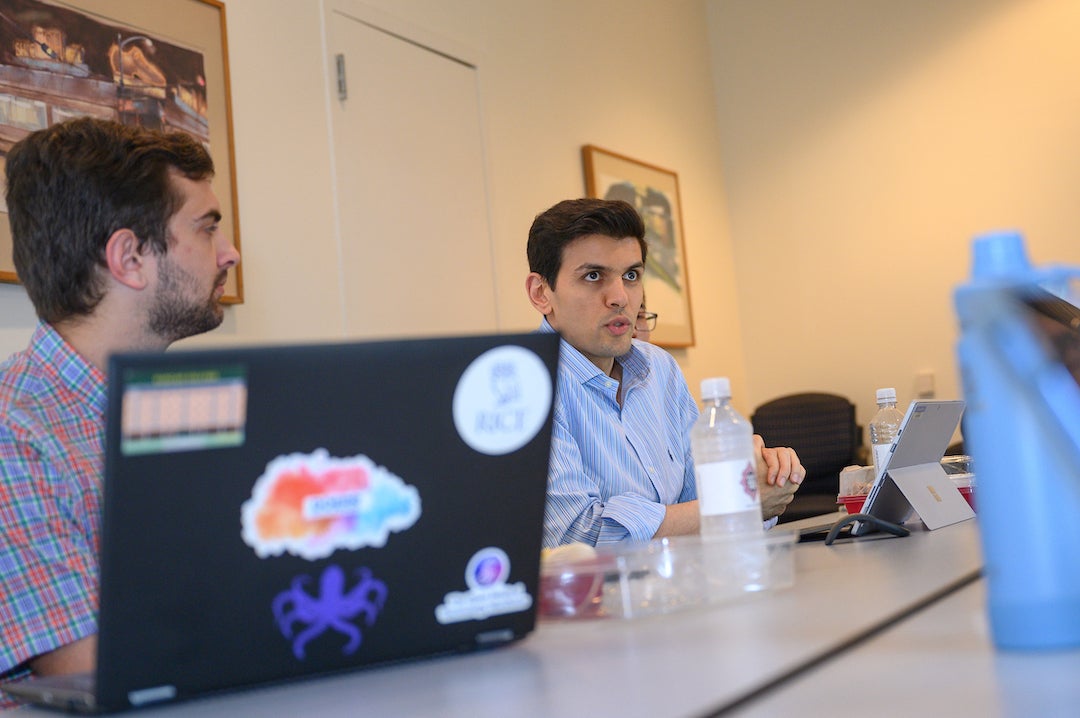
Higher education institutions across the country have a few more months to begin applying for the Carnegie Elective Classification for Leadership for Public Purpose (LPP) within Rice University's Doerr Institute for New Leaders. The program aims to improve the practice of leadership education and development.
A national advisory committee of 17 scholars and practitioners from universities and private industries held a kickoff meeting last month to discuss the upcoming review process for applications. The new classification was established by the Doerr Institute in partnership with the Carnegie Foundation for the Advancement of Teaching and the American Council on Education (ACE).
The program asks institutions to assess their own leadership education and development performance; the application explores the training and development of staff, faculty and students to ensure a thorough portrayal of their leadership programs. If they can prove extraordinary institutional commitment through the resources provided by their campuses, they receive the Carnegie Foundation's endorsement as a Classified Institution.
The Carnegie Foundation has pioneered a broad range of transformative advancements in education at all levels since being chartered by an act of Congress in 1906, including the creation of standards for schools of law, medicine, education and engineering; Educational Testing Service and its GRE; Pell Grants and the U.S. Department of Education. Today, the foundation aims to foster educational equity for Black, Latinx, Indigenous, Asian and Pacific Islander, and first-generation students, as well as those from low-income households.
"Given the significant impact that Carnegie's classifications have had on the higher education sector, we can anticipate similar influential, even transformational impacts around leadership development," said Paul LeMahieu, senior vice president of the Carnegie Foundation. "To achieve this, it has been essential to develop sound conceptual frameworks and guiding principles, rigorous processes for ensuring quality and impact of leadership opportunities, as well as fostering and supporting 'communities of passion' whose members learn with and from each other to improve and advance leadership in service to society."
Institutions that are classified by the Carnegie Foundation have until July 1, 2023, to initiate the application process for the LPP program, and they'll have until Dec. 1 to complete it. The current classification cycle will end with the selection process of the Classified Institutions in 2024, and the next cycle will begin in 2025.
"We started to talk about this in 2019 because while we were pretty happy with how we were developing students as leaders at Rice, we started to look at the broader landscape of higher education and saw that the field could benefit from a little improvement," said Carla Ortega, strategic initiatives manager at the Doerr Institute for New Leaders and administrator of the Carnegie Elective Classification LLP program.
"Universities across the country claim to be developing student leaders. It's in their missions, visions, strategies. But there is no way to know if they are walking the walk or just talking," said Stefanie Johnson, director of the Doerr Institute. "The Carnegie Elective Classification for Leadership for Public Purpose provides colleges and universities with an opportunity to demonstrate their excellence in leadership. At the same time, the process is a great self-study and has helped us find areas of opportunity to improve our commitment to leadership for public purpose."
The Doerr Institute began forming the initiative in January 2020 when more than 30 leadership experts representing colleges and universities from around the country convened on Rice's campus. The meeting gathered a broad range of institutions - public, private and community - as part of the Consortium for Improvements in Leadership Education and Development to examine the existing field and draft a proposal for the LPP classification, which builds on the success of the Carnegie Foundation's Community Engagement Classification.
Doerr also underwent a pilot program where nine schools went through the application process in preparation for this first cycle.
"They put together this comprehensive application and have to do all sorts of data gathering and analysis to prove that they really are developing tomorrow's leaders," Ortega said. "Everything leadership-focused is analyzed in this framework."
The schools selected as Classified Institutions will be recognized and acknowledged by the Carnegie Foundation and receive a badge symbolizing their dedication to leadership development and public purpose.
"Broadly, the hope is that the field is improved so universities and colleges across the nation develop better oversight and develop more and better leaders," Ortega said. "On a smaller scale, we hope every institution takes a hard look at what it is they're doing and how they can improve because students don't grow as leaders without purposeful development."
Institutions will be notified in spring 2024 whether or not they have been selected. To learn more or to apply, click here.






